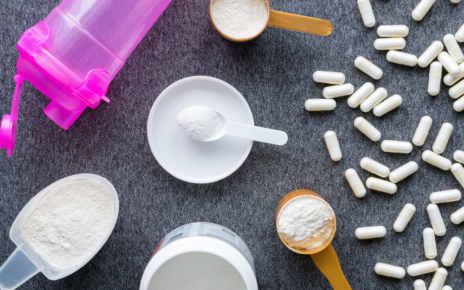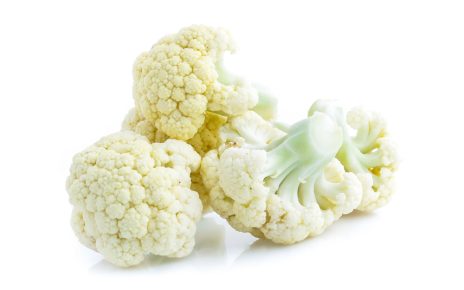Is sauerkraut keto? Some people love it, and some hate it. Sauerkraut refers to fermented raw cabbage that may have originated from China. It is made by leaving finely shredded cabbage with salt to ferment naturally by lactobacilli.
The end product of the lactic acid fermentation is a sour vegetable that is often used as a side dish. It is important to point out that the lactic acid formed during the fermentation process inhibits any growth of harmful bacteria.
This means that it is very safe to consume sauerkraut and presently, it is used as one of the most popular toppings for sausage based meals (bratwurst ,yum!).
Sauerkraut is low-carb and although it undergoes fermentation, its nutritional profile is not affected. This article discusses the health benefits of sauerkraut that makes it useful on the keto diet as well as its macronutrient profile.
Macronutrients and Micronutrients in Sauerkraut
To understand the macro and micronutrient content of sauerkraut, it is important to know the nutritional profile of its main ingredient which is cabbage. There are different types of cabbage including the white cabbage which is one of the most popular cabbages consumed all over the world. Other types of cabbage include the napa cabbage, red cabbage, and the savoy cabbage. It is necessary to be familiar with the different types of cabbage because they can be used to prepare sauerkraut.
Macronutrients in white cabbage (per 100 grams):
Calories – 27
Carbohydrates – 5 grams
(Net carbs – 3 grams)
Fat – 0.2 grams
Protein – 1.4 grams
Fiber – 2 grams
Zinc, copper, sodium, potassium, iron, calcium and other important micronutrients are also present.
Macronutrients in napa cabbage (1 cup):
Calories – 13
Carbohydrates – 2.4 grams
Fat – 0.2 grams
Protein – 1.2 grams
Macronutrients in red cabbage (1 cup):
Calories – 22
Carbohydrates – 5 grams
Fat – 0.1 grams
Protein – 1 gram
Macronutrients in savoy cabbage (1 cup):
Calories – 19
Carbohydrates – 4.3 grams
Fat – 0.1 grams
Protein – 1 gram
The nutritional profile of the different types of cabbage clearly shows that it is low-carb and that when it is consumed, it will not in any way affect ketosis.
Health Benefits of Sauerkraut on Keto
- Sauerkraut may help enhance weight loss: Just as the macronutrients show, sauerkraut is made using cabbage which is a low-calorie vegetable. Also, part of the carbohydrates in cabbage is fiber that can promote satiety for a longer period of time. Consuming sauerkraut can then help reduce the amount of food that is consumed throughout the day and thus promote weight loss. The probiotics in sauerkraut may also help to reduce fat absorption by the body and enhance weight loss. This may, however, not entirely suit the needs of individuals on keto who require a high-fat meal to reach ketosis.
- Sauerkraut can help improve digestion: On the keto diet, foods that are rich in carbs are usually avoided. These food that contains lots of carbohydrates are also rich in fiber which is essential for digestion and maintenance of bowel health. Although the cabbage from which sauerkraut is made is a less starchy vegetable, it still contains fiber. This means that the consumption of sauerkraut can help improve digestion and protect against any digestive disorder such as constipation and diarrhea. The probiotics in sauerkraut are beneficial bacteria that also help to protect the gut by destroying harmful bacteria.
- Consumption of sauerkraut on keto may promote a healthy heart: Cardiovascular risk factors such as obesity and increased blood pressure can effectively by overcome with the low carb keto diet. This is related to the fact that the keto diet can be used to enhance weight loss. As already mentioned, consumption of fiber-rich sauerkraut can promote satiety and ultimately lead to weight loss which in turn lowers the risk for any cardiovascular disease including high blood pressure. The fiber content, as well as probiotics, also play an important role in reducing cholesterol levels. Studies have also shown that there are compounds in sauerkraut that help reduce vascular calcification which is one cause of cardiovascular morbidity and mortality. [1]
- It may help boost the immune system: This property of sauerkraut is related to its ability to improve gut health. When sauerkraut is consumed, the probiotics destroy harmful bacteria that can damage the lining of the gut. If these harmful bacteria are not removed, unwanted substances can pass through the gut lining and get access to the body causing an immune response. Infections of any kind can also be prevented when the immune system is boosted.
The Problems Associated with Purchasing Sauerkraut
Sauerkraut has become a very popular dish among individuals who want the benefits of a keto diet. It can be purchased from supermarkets or prepared at home. However, it is important to keep the following points in mind before purchasing commercially sold sauerkraut.
- Commercially sold sauerkraut may have lost some nutrients: When sauerkraut is sold commercially, it is usually packaged in jars or cans and may have been on the supermarket shelf for a very long time. This means that the live probiotics found in fermented food that are not only beneficial to the gut but also to the immune system may be lacking. Also, because of the extended shelf life, it is also possible that the sodium content in commercially sold sauerkraut has become more concentrated and can cause hypertension when it is consumed. The lack of probiotics may be due to the pasteurization and canning process which kills the bacteria when it is exposed to high heat. Instead of purchasing canned sauerkraut from the shelf of a supermarket, it may be best to opt for sauerkraut that is kept in a refrigerator.
- Commercially sold sauerkraut may contain extra ingredients and preservatives: On the keto diet, it is very important to read the labels of any food that is purchased. This is necessary in order to avoid purchasing food that may be advertised as low-carb but contains added sugars and other ingredients that either have no benefit on keto or may even stop ketosis. Any brand that adds any form of preservative to sauerkraut must be avoided since it can lower the amount of probiotics present. It is best to search for a brand that makes use of only cabbage and salt in the preparation of sauerkraut.
To get the best results when sauerkraut is included on a low-carb diet, it may be best to prepare it at home. Sauerkraut can be prepared using any of the different types of cabbage and non-iodized salt. The shredded cabbage and salt is usually stored in a jar for a minimum of a week and may be left until a month before it is consumed.
Sauerkraut FAQ
1. What is sauerkraut?
Sauerkraut is a tangy, fermented cabbage that is often used as a condiment.
2. Is sauerkraut keto-friendly?
Yes, sauerkraut is low in carbs and can be consumed on the keto diet.
3. How many carbs are in sauerkraut?
A cup of sauerkraut contains about 5 grams of total carbs, with approximately 3 grams of net carbs.
4. Can I eat sauerkraut on a low-carb diet?
Yes, sauerkraut is low in carbohydrates and can be included in a low-carb diet.
5. What is the carb count in sauerkraut?
A serving of sauerkraut typically contains around 3 grams of net carbs.
6. How much sauerkraut can I consume on keto?
You can consume sauerkraut in moderation on the keto diet, there is not a specific limit but account for sauerkraut’s carb content in your meal plan.
7. How many grams of net carbs are in sauerkraut?
A cup of sauerkraut contains about 3 grams of net carbs.
8. Can I make sauerkraut at home?
Yes, homemade sauerkraut is easy to make with just cabbage and salt and offers many health benefits, including probiotics.
9. Do you have a recipe for keto-friendly sauerkraut?
Yes, you can try this ketogenic sauerkraut recipe: shred 1 head of cabbage and mix with 1 tablespoon of salt. Place mixture into a mason jar, cover with a coffee filter, and let sit at room temperature for 3-10 days, stirring occasionally. Store in the fridge once fermented to your liking.
10. Is sauerkraut a great addition to the keto diet?
Yes, sauerkraut is a great addition to the keto diet, as it is low in carbohydrates and offers many health benefits, including probiotics that can support a healthy gut and immune system.
Easy Keto Sauerkraut Recipe
you will need a head of cabbage, sea salt, an airtight container, and a weight (such as a clean rock or glass weight).
1. Remove the outer layer of the cabbage and save a few of the larger leaves. Thinly slice or shred the cabbage into a large bowl.
2. Add 1-2 tablespoons of sea salt per 1.5 lbs of cabbage. Mix the cabbage and salt together and let sit for 10 minutes to allow the salt to draw out the water from the cabbage.
3. Begin to massage the cabbage, squeezing it with your hands until it releases enough liquid to be submerged in its own brine. This can take anywhere from 5-20 minutes.
4. Fill a jar or airtight container with the cabbage, pressing it down firmly with your hands or a wooden spoon as you go.
5. Pour in the remaining brine to completely cover the cabbage. If there is not enough brine to completely submerge the cabbage, add a bit of water until it is fully covered.
6. Place one or two leaves saved from earlier on top of the cabbage to act as a cover and then place the weight on top of the leaves.
7. Cover the container with a cloth or cheesecloth and secure it with a rubber band.
8. Let the sauerkraut ferment in a cool, dark place for 7-21 days, depending on how tangy you like it. Check on it periodically to ensure that the cabbage is still submerged and the brine hasn’t evaporated.
9. Once the sauerkraut has reached your desired level of tanginess, remove the weight and the cover leaves and transfer it to the fridge. It can be eaten immediately and will last for several months when stored in the fridge.
Conclusion– Is Sauerkraut Keto
Sauerkraut is made from low-carb cabbage and it is suitable for consumption on the keto diet. Although it is a relatively low-fat food, it can easily be paired with a meal that is rich in fat to meet the requirements of the keto diet.
When sauerkraut is consumed, it has numerous health benefits including enhancing weight loss, improving digestion, promoting a healthy heart and boosting the functions of the immune system. Although sauerkraut can be purchased, it is necessary to pay close attention to the ingredients and avoid those that contain preservatives.
Be sure to have sauerkraut, and the many other keto friendly veggies available at your disposal and you’ll be well on your way to your goals.


